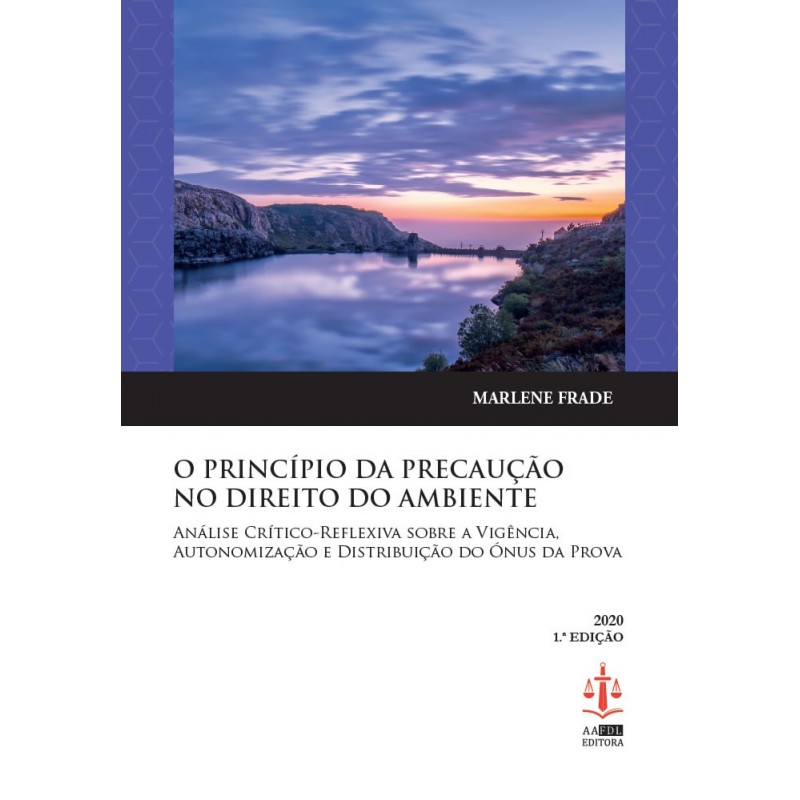



 SAFE PAYMENT
SAFE PAYMENT
Secure payments directly managed by banks. ATM, MBWay and Paypal available.
 FREE SHIPPING FROM 25€
FREE SHIPPING FROM 25€
Deliveries in 2 to 3 business days (except holiday period).
 CUSTOMER SUPPORT
CUSTOMER SUPPORT
We are available to clarify all your doubts.
Resumo
A desmistificação, ao longo da segunda metade do séc. XX, do poder absoluto da ciência e da técnica, e a consequente perceção da existência de «novos riscos», efetiva ou potencialmente lesivos para o bem ambiental, conduziu ao reconhecimento do risco como característica determinante da sociedade em que atualmente vivemos, demandando, por efeito, a adoção de novos modelos de gestão e controlo dos riscos, capazes de lidar com as incertezas de teor científico existentes.
Ora, entre as soluções que o Direito tem avançado, conta-se o princípio da precaução – um princípio que, não obstante a sua disseminação pela legislação internacional e comunitária, tem suscitado, entre nós, grande controvérsia doutrinal e jurisprudencial quanto à sua vigência, à sua autonomização face ao clássico princípio da prevenção e quanto à distribuição do ónus da prova.
Por este motivo, julgámos que seria pertinente e interessante voltar a olhar para este princípio, sobretudo por recurso à nova Lei de Bases do Ambiente, uma vez tendo esta passado a consagrar expressamente a precaução como princípio material do ambiente.
Com esta dissertação de mestrado pretendemos, portanto, dar um passo à frente nas investigações que até então têm sido feitas, procurando, deste modo, contribuir para uma clara compreensão deste princípio, pela resposta à seguinte questão: poderá, em abstrato, o princípio da precaução ser nomeado como ratio decidendi de uma demanda jus-ambiental?
A resposta a que chegámos é, fundamentalmente, a de que, devido à força jurídica do Direito da União, e à diferente natureza dos riscos que este princípio visa evitar (ou fazer cessar), não existem, em nosso
entender, quaisquer argumentos lógicos para que, mesmo antes da entrada em vigor desta lei, a jurisprudência portuguesa tenha, o mais das vezes, recusado aplicar o princípio da precaução, desconsiderando as limitações predicativas da ciência contemporânea e a tendencial irreversibilidade dos danos que possam ser causados ao bem ambiental.
Não obstante, sublinhámos a urgência de uma alteração legislativa, formulando, a final, algumas propostas, no plano de jure condendo, quer quanto à possibilidade de uma distribuição dinâmica do ónus da prova, quer quanto ao problema da desproporcionalidade em sentido estrito, suscitado pela redação do artigo 3.º, alínea c), desta lei.
Palavras-chave: ambiente, princípio da precaução, vigência, autonomia, distribuição do ónus da prova